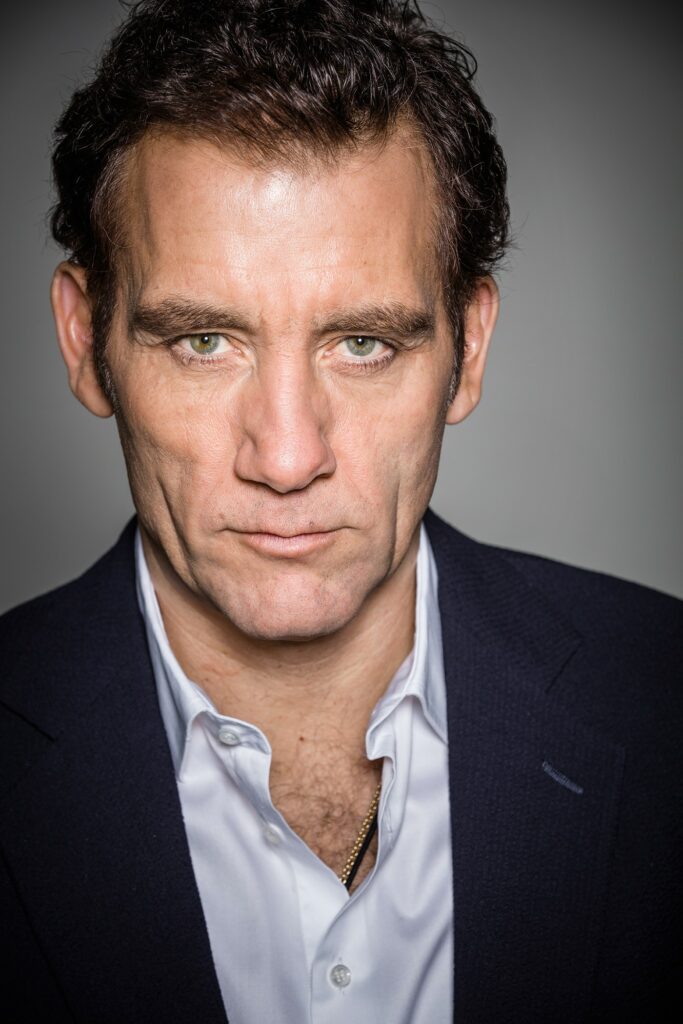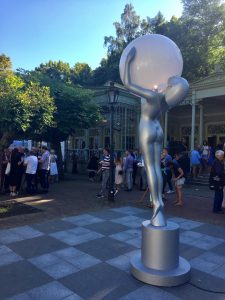The 54th edition has unveiled the first competition titles in the Official Selection, East of the West and Documentary sections. Twelve films with compete for coveted Crystal Globe – 10 world premieres and two international premieres.
Cambodian-born, UK director Hong Khaou will be there to present his follow-up to the rather delicate LGBTQ drama debut Lilting, (2014). Monsoon stars Henry Golding (Crazy Rich Asians) whose return to Vietnam is a stressful homecoming. Chinese director Zhai Yixiange’s Mosaic Portrait also joins the line-up along with a psychological drama Lara from German director Jan Ole Gerster and Martha Stephens’ black and white coming of age 1960s-set drama To the Stars. Slovenia’s Damjan Kozole, who won Best Director 2016 for Nightlife, returns with Half-Sister; and the competition also features a Chilean comedy Sci-fi from Felipe Ríos The Man From The Future and a Spanish drama from Jonas Trueba’s August Virgin. Patrick is the first film from Belgium’s Tim Mielants in a comedy drama starring Jan Bijvoet (Embrace of the Serpent). Turkey’s Kivanc Sezer’s La Belle Indifference adds more fun to the competition line-up.
OFFICIAL SELECTION – COMPETITION
The Father (Bul-Gre) – World premiere
Director: Kristina Grozeva, Petar Valchanov
Patrick / Patrick (Bel) – World premiere
Director: Tim Mielants
The Man from the Future (Chi) – World premiere
Director: Felipe Ríos
La Belle Indifference (Tur) – World premiere
Director: Kıvanç Sezer
Lara (Ger) – World premiere
Director: Jan Ole Gerster
Mosaic Portrait (Chi) – World premiere
Director: Yixiang Zhai
Monsoon (UK) – World premiere
Director: Hong Khaou
Let There Be Light (Slo-Cze) – World premiere
Director: Marko Škop
Ode to Nothing (Phi) – International premiere
Director: Dwein Baltazar
Half-Sister (Slo-Mac-Ser-Cro) – World premiere
Director: Damjan Kozole
To the Stars (USA) – International premiere
Director: Martha Stephens
The August Virgin (Spa) – World premiere
Director: Jonás Trueba
 EAST OF THE WEST
EAST OF THE WEST
The East of the West brings the creme de la creme of East European films to the wooded Czech town and its usually very strong with some promising debut. This year opens with a Kosovan feature debut from Lendita Zeqiraj. Highlights this year include Ukrainian director Antonio Lukich’s My Thoughts Are Silent, Kosovo director Lendita Zeqiraj’s female centric drama, Aga’s House, and Serhat Karassian’s Turkish prison drama, Passed by Censor.
Last Visit (Sau) – World premiere
Director: Abdulmohsen Aldhabaan
Arrest (Rom) – International premiere
Director: Andrei Cohn
The Bull (Rus) – International premiere
Director: Boris Akopov
Passed by Censor (Tur) – International premiere
Director: Serhat Karaaslan
Silent Days (Slo-Cze) – World premiere
Director: Pavol Pekarčík
Mamonga (Ser-Bos-Mon) – World premiere
Director: Stefan Malešević
My Thoughts Are Silent (Ukr) – World premiere
Director: Antonio Lukich
Nova Lituania (Lit) – World premiere
Director: Karolis Kaupinis
Aga’s House (Kos-Cro-Fra-Alb) – World premiere
Director: Lendita Zeqiraj
Scandinavian Silence (Est-Fra-Bel) – European premiere
Director: Martti Helde
A Certain Kind of Silence (Cze-Net-Lat) – World premiere
Director: Michal Hogenauer
Zizotek (Gre) – World premiere
Director: Vardis Marinakis
 DOCUMENTARY FILMS – COMPETITION
DOCUMENTARY FILMS – COMPETITION
The 11-strong documentary strand features eight world premieres. Highlights will include Spoon (of the plastic variety) from Latvian filmmaker Laila Pakalnina; Over The Hills from award-winning Czech documentarian Martin Mareček (Solar Eclipse). and Todd Douglas Miller’s Apollo 11 with archive footage from Buzz Aldrin and Neil Armstrong.
17 Blocks (USA) – European premiere
Director: Davy Rothbart
Apollo 11 (USA) – Czech premiere
Director: Todd Douglas Miller
The Fading Village (China) – World premiere
Director: Liu Feifang
Over the Hills (Cze) – World premiere
Director: Martin Mareček
Up to Down (Ita) – World premiere
Director: Nazareno Manuel Nicoletti
In the Arms of Morpheus (Net) – World premiere
Director: Marc Schmidt
Spoon (Lat, Nor, Lit) – World premiere
Director: Laila Pakalniņa
Confucian Dream (Chi) – European premiere
Director: Mijie Li
Projectionist (Ukr-Pol) – World premiere
Director: Yuriy Shylov
The Last Autumn (Ice) – World premiere
Director: Yrsa Roca Fannberg
Immortal (Est-Lat) – World premiere
Director: Ksenia Okhapkina
 Official Selection – Out of Competition
Official Selection – Out of Competition
Mystify: Michael Hutchence (Aus) – European premiere
Director: Richard Lowenstein
Old-Timers (Cze) – World premiere
Director: Martin Dušek, Ondřej Provazník
The True Adventures of Wolfboy (USA) – World premiere
Director: Martin Krejčí
Special Events
The Sleepers (Cze) – World premiere
Director: Ivan Zachariáš
Forman vs. Forman (Cze-Fra)
Director: Helena Třeštíková, Jakub Hejna
Jiří Suchý – Tackling Life with Ease (Cze) – World premiere
Director: Olga Sommerová
The Downfall of the Secluded Berhof (Cze)
Director: Jiří Svoboda
Karlovy Vary INTERNATIONAL FILM FESTIVAL 2019 | 28 JUNE – 7 JULY 2019


 Set in the peaceful charm of the former Bohemia, Karlovy Vary was once known as Marienbad. The annual Film Festival is one of the oldest and most prestigious in the World dating back to 1946. It is backed by the Ministry of Culture and hosted by the Grand Hotel Pupp. But most of the screenings take place in the Brutalist concrete Hotel Thermal which has now become somewhat of an iconic tribute to the country’s years under Communism.
Set in the peaceful charm of the former Bohemia, Karlovy Vary was once known as Marienbad. The annual Film Festival is one of the oldest and most prestigious in the World dating back to 1946. It is backed by the Ministry of Culture and hosted by the Grand Hotel Pupp. But most of the screenings take place in the Brutalist concrete Hotel Thermal which has now become somewhat of an iconic tribute to the country’s years under Communism.  EAST OF THE WEST
EAST OF THE WEST DOCUMENTARY FILMS – COMPETITION
DOCUMENTARY FILMS – COMPETITION Official Selection – Out of Competition
Official Selection – Out of Competition